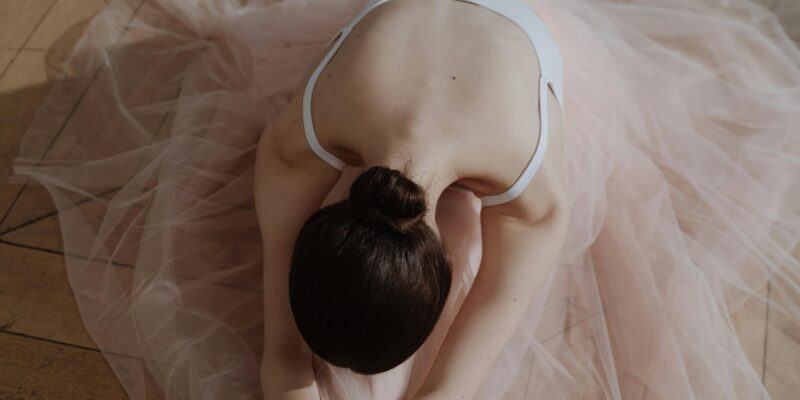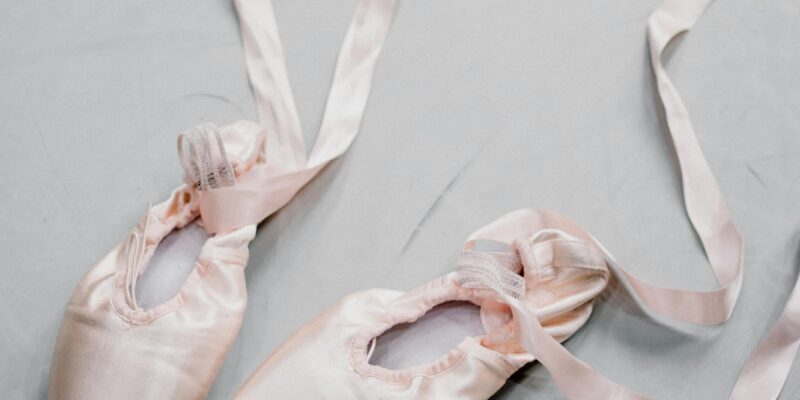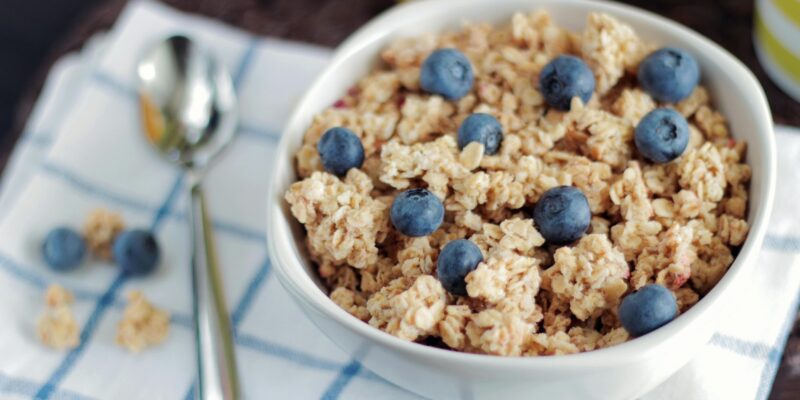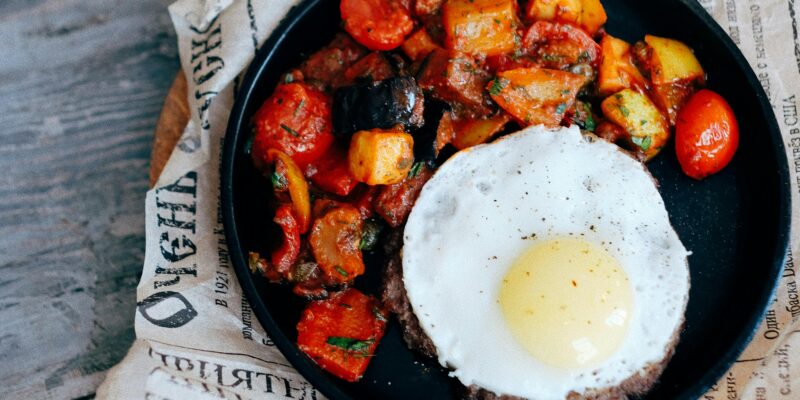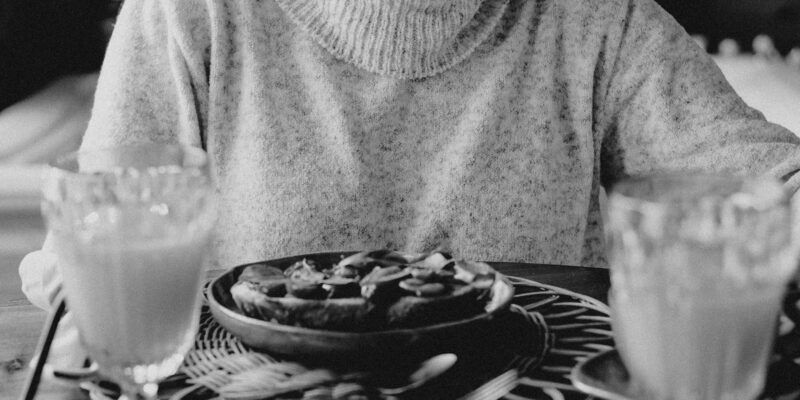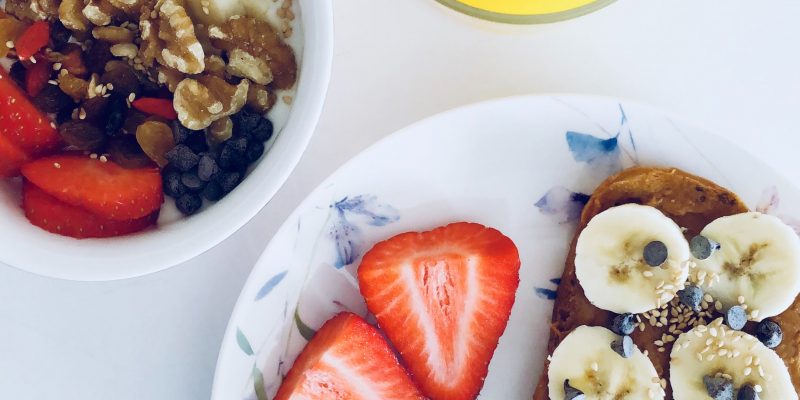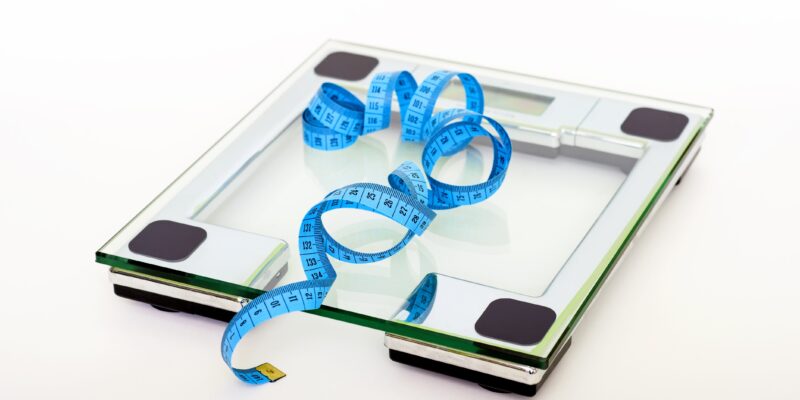A ballerina diet focuses consistency and balance. Ballet dancers need to optimize their food choices to support their energy to dance. As a result, a varied and non-restrictive diet is key. Add foods like colorful fruits and veggies, whole grains, eggs, potatoes, blueberries, to name a few.
Read More...Pantry Staples for Dancers
For dancers, the benefits of a well-stocked pantry are vast. It eases meal prep when long hours in the studio often mean less time in the kitchen. It helps with eating on a budget and offers a simple solution to boosting the nutrient density of your meals. So what pantry staples should every dancer stock? This blog post will uncover essential pantry staples for dancers to ensure a balanced and nourishing meal plan. The best part? Each is shelf-stable, making it a budget-friendly and convenient addition to meals or snacks.
Read More...Here’s why “Eat in Moderation” is the worst advice ever
When you’re placing any limit (even that “in moderation” limit) upon yourself and food, you’re setting yourself up to want more. Yes, it can be scary to attempt a lifestyle without any limits over your food choices. But eventually, you’ll learn how to identify what feels good and what doesn’t. You’ll discover what “enough” really is for you and what it means to feel satisfied.
Read More...Is Fast Food Off-Limits for Dancers?
The controversy about fast food isn’t new for dancers. We’ve heard about the “dangers” of the Western diet— one that is often described as being high in fast and processed food. But for many dancers, whether on tour, traveling for auditions, or moving through competition season, fast food becomes an easily accessible source of nourishment.
Read More...How to compliment a dancer
Complimenting a dancer on their body’s weight, shape, or size not only reinforces harmful stereotypes but also, reduces a dancer’s worth to their weight. This undermines the years of training and hard work invested. In this blog post, we delve into why it is crucial to refrain from complimenting a dancer on their weight.
Read More...Dancing After Surgery
For dancers, injuries are an unfortunate reality. More than 80% of dancers experience at least one injury during their career— a daunting statistic. Whether it’s a minor strain or a major fracture, dancing after an injury requires careful consideration and planning— a proactive and mindful approach to ensure your safe return to the studio. In this blog post, we’ll explore the key factors dancers should consider when dancing after an injury and surgery.
Read More...Battling Cold & Flu Season
For dancers, battling the common cold mean looking at both your plate and your lifestyle. Colder temperatures may promote the transmission of viruses and indirectly increase your risk of getting sick. Increasing your intake of foods high in Vitamin C can help support your immune system, but that’s not all. In this blog post, we’ll uncover critical steps to take to reduce your risk of getting sick this performance season.
Read More...15+ Oatmeal Recipes and Nutrition Boosters
Whether enjoyed plain or enhanced with toppings, oatmeal is a nutritious cornerstone in the dancer’s diet. As a complex carbohydrate, oatmeal offers sustained energy release, crucial for fueling intensive rehearsals and performances while helping to maintain stable blood sugar levels. Its high fiber content aids in digestive health, promoting a feeling of fullness. In this blog post, enjoy over 25 recipe and ingredient boosters for your oatmeal.
Read More...The Importance of Vitamin B12 for Dancers
Vitamin B12 plays an active role in many bodily functions— from your blood health and nerve functioning, to your growth and genetic makeup. Vitamin B12 also functions in the process of metabolism, supporting the breakdown and utilization of nutrients from food for energy. Since our bodies cannot produce vitamin B12, we must obtain it through our diet. In this blog post, we’ll explore why this vitamin is crucial for dancers, how to ensure an adequate intake and provide some delicious recipes to incorporate into your meal plan even if you’re a plant-based dancer.
Read More...30+ habits of The Healthy Dancer®
Becoming The Healthy Dancer® means challenging ideals— those dictating how dancers should and shouldn’t look, how much dancers should and shouldn’t train, what dancers should and shouldn’t eat, and how much dancers should and shouldn’t eat. Most importantly, it embodies the journey towards redefining this term: healthy. What are some characteristics of *healthy* dancers? In this blog post, we’re listing the most common among dancers who are actively supporting sustainable careers.
Read More...Salt for dancers: how much is too much?
Among the various nutrients, one that has garnered mixed reviews is salt. Many dancers fear salt. It’s not uncommon for dancers to go as far as restricting their salt intake altogether, fearing it will cause bloat and water retention. However, salt is an incredibly important mineral for a dancer’s body, and understanding its role can […]
Read More...How To Eat Healthy In College
College is an exciting time that brings about a newfound level of independence and autonomy. But for many college-aged dancers, limited time and financial resources can make the idea of fueling for performance stressful especially is residing in a dorm for a summer dance intensive or a year-round pre-professional program.
Read More...Food Variety- why dancers need more of it
Learning how to build a supportive eating routine is a tenet of The Healthy Dancer® — a key player in their physical, mental, and emotional well-being. In my work as a dietitian for dancers, we prioritize balanced meals to ensure adequate fueling patterns. Alongside this is aiming for a variety of foods. But what does […]
Read More...Performing again… even in motherhood
I did a thing… and it wasn’t something I expected to do… ever again. Nearly 15 years ago, I said goodbye to stage life. At the time, I was struggling with disordered eating and feeling stuck in my identity as a dancer. Dancing had always been a MAJOR part of my life, but a newfound […]
Read More...The Importance of Iron for Dancers
Iron is a notable mineral relied upon by athletes for performance success— so much so that the International Olympic Committee recommends iron screenings during health evaluations. Despite a dancer’s needs being comparable to those of athletes, iron remains overlooked. In a study of female ballet dancers, more than half were reported to be iron deficient. In this blog post, we will explore the paramount importance of iron for dancers and how it contributes to their overall performance and well-being.
Read More...Dealing with Food Disappointment
We’ve all been there – eagerly anticipating a delicious meal only to be met with disappointment. At this moment, do we keep eating? Is it “worth it?” Whether it’s a homemade dish that didn’t turn out as expected or a restaurant experience that fell short, dealing with culinary letdowns is a part of our food journey. For dancers who struggle with disordered eating, however, this disappointment is amplified. In this post, we’ll explore practical tips on how to cope with a disappointing food or meal.
Read More...What’s The Best Diet for A Dancer?
In pursuit of their performance, dancers are often swayed by the illusion of a “perfect” diet. But in the context of food, this can lead them down an unsustainable path. Rigid food rules create a cycle of guilt, anxiety, and stress at mealtimes. With a dancer’s risk of developing an eating disorder three times higher than that of the general person, it’s imperative to recognize the importance of nutrition for performance. In this blog post, we’ll uncover 5 lifestyle changes to help dancers optimize their plates or performance.
Read More...What Is A Ballet Body?
For dancers, a presumed “ideal body” formulates what many know to be the “aesthetic” of ballet. It often ignores what is healthy, and rather, embodies a cluster of privileges surrounding diet and weight— those rooted in white elitism. It has taken me years to find peace and neutrality with my body, let alone continue to dance with it. So when I hear from dancers who continue to experience weight stigma, “fat” talks, and comments in the studio, alarm bells sound. In this blog post, we’ll explore the impact of weight comments in the studio and on social media, and provide practical strategies to navigate these challenges.
Read More...Weight Loss for Dancers
A dancer’s desire to lose weight is the reality of an industry saturated with aesthetic ideals. But here’s the deal: as a clinician, it’s my ethical duty to educate dancers about the hard facts of not only dieting, but also, systemic fatphobia. Therefore, weight loss isn’t a priority for The Healthy Dancer®. Now, despite weight loss not being a priority for The Healthy Dancer®, it could be a symptom as you build a supportive relationship with food.
Read More...Your Mind-Body Connection: The Role of Food and Nutrition
For dancers, the mind-body connection plays a pivotal role in developing artistic expression. A dancer’s mind-body connection relies on more than just a balanced plate. In this blog post, we will explore the intricate relationship between food, nutrition, and the mind-body connection for dancers— welcoming The Healthy Dancer® Body of Evidence as a tool to build your mind-body connection.
Read More...



